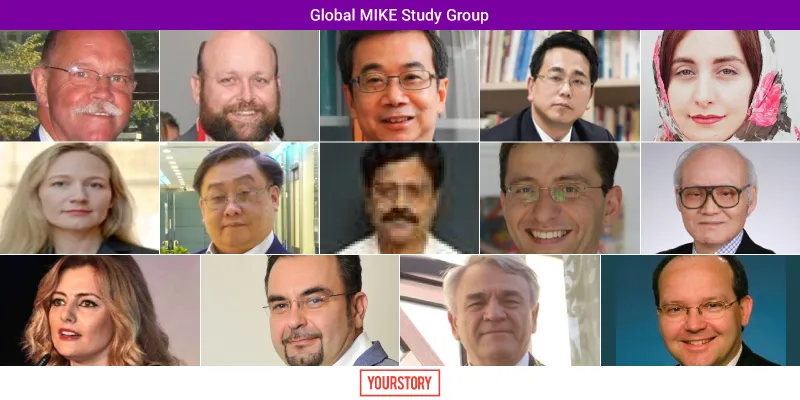Knowledge and innovation excellence: CII summit presents tips from winners of the Most Innovative Knowledge Enterprise awards
Digital transformation, empowered employees, and a culture of exploration are key for success in the knowledge era. A range of experts shows how leadership support for creativity and productivity help in this regard.
Best practices in knowledge management and digital transformation were discussed over three days at the recently-concluded CII Global Knowledge Virtual Summit 2020: Knowledge in the Age of Artificial Intelligence. This was the 15th edition of the annual summit, focussing on the evolution of the intelligent enterprise.

was the media partner for the summit in 2019 and 2020. See our article series which includes Knowledge Leadership, KM in the Age of AI, Gamification, Storytelling, Knowledge Sharing in the COVID-19 Era, and Eye on AI.
The conference was also supported by the Knowledge Management Global Network (KMGN), an alliance of KM professional societies from 11 countries. One of the highlights of the conference this year was the presentations and discussion of winner case studies in innovation and knowledge management (KM).
Most Innovative Knowledge Enterprise (MIKE) Award
WB Lee, Former Director of the KM and Innovation Research Centre, Hong Kong Polytechnic University, explained how the MIKE Award builds on the original Most Admired Knowledge Enterprise (MAKE) Award, launched by Rory Chase of Teleos in 1998. (See my book series The KM Chronicles for case studies of earlier winners of the MAKE Awards and Singapore KM Excellence Awards.)
The International Global MIKE Study Group has developed a framework to assess how organisational knowledge inputs and outputs lead to superior products, services and solutions. It helps organisations assess their knowledge and innovation processes, receive feedback from international experts, and access peer networks.
These awards differ from other rankings such as the Forbes 100 Most Innovative Companies, which requires companies to have a market capitalisation of at least $10 billion to be considered. This leaves out government agencies and SMEs, which are considered by the MIKE awards, according to Lee.
MIKE winner scores are based on eight parameters: empowerment of knowledge workers, transformative leadership, user experience, knowledge networks, innovative culture, knowledge-based offerings, knowledge creation processes, and creative spaces.
Together, these criteria cover human capital, relational capital, innovation capital, and process capital. Eight countries and regions took part in the 2019 Global MIKE study: China, Hong Kong SAR, India, Indonesia, Iran, Japan, the Middle East, and the US.
The two Most Outstanding Winners of the Global MIKE Award 2019 are EY and . Winners at both India and global levels are Afcons, Cognizant, Tata Chemicals and . See our earlier interviews with Richard Lobo, Head of Strategy and Business Excellence at Tata Chemicals, and Rudolf D’Souza, Chief Knowledge Officer at Afcons Infrastructure.

Knowledge and leadership
At the MIKE session during the CII summit, Ramesh Ramadurai, Managing Director of 3M India, explained that knowledge workers are the most important assets of an organisation. A robust KM strategy and an engaged workforce that readily shares knowledge are key success factors.
Storytelling reinforces organisational culture, and can showcase responsiveness to customer concerns. AI can help real-time decision-making at scale. Organisations should light up their hidden knowledge, Ramesh advised.
The knowledge journey of Outstanding MIKE Winner EY was presented by Vineet Jain, Knowledge Leader for Global Delivery Services, EY. The company has over 280,000 employees spread across 150 countries.
EY’s knowledge journey over the past three decades has spanned phases like personal knowledge, repositories, networks, social media platforms, and advanced solutions leveraging AI. Knowledge inputs are now embedded into processes, and knowledge assets are automatically classified. Chatbots have also been deployed to improve employee engagement.
Vineet showed how the knowledge approach of ‘Find, Connect, Inform’ makes it easier for people to locate relevant content, tools, resources, and experts. This is enabled by the global knowledge portal called Discover, which now has a dedicated section for COVID-19 resources.
Employees take pride in being seen as experts and being accessible for problem-solving needs. They earn EY Badges in the process. EY Wavespace offers centres of excellence in areas like IoT and security.
EY’s innovational management platform is called Cognistreamer, and innovation activities include Global Innovation Challenges, hackathons, and Entrepreneur of the Year awards. Academic partnerships have been formed with a number of leading universities. Knowledge is a key differentiator for EY’s NextWave strategy for future excellence, Vineet emphasised.
The knowledge-driven transformation of Infosys into a ‘live enterprise’ was presented by Phani Tummarakoti, Principal, Learning and Knowledge Management at Infosys. This enables the sentient organisation to sense and respond to stimuli in real-time, like a living organism.
Infosys has 242,000 employees spread across 50 countries. Agile capability, energised employees, knowledge skills and apps are some of the core pillars of its ‘enterprise digital brain.’
Phani explained the four key principles of make it convenient, relevant, and fun, and make it matter. The digital platform for learning and KM is called Lex, and includes features like gamification, byte-sized content, social collaboration, and virtual playgrounds to apply concepts.
Impacts of the digital capabilities include reduction in project setup time by 12 percent, according to Phani. The company’s experience with digital talent transformation of its vast workforce has also been leveraged into a platform for its clients.
MIKE Winners panel
YourStory moderated the panel on Knowledge Excellence: Winners of the Global MIKE Awards. It featured Hank Malik (Petroleum Development Oman), S Elidjen (BINUS University, Indonesia), Allen Leung (Architectural Services Department, Hong Kong), Richard Lobo (Tata Chemicals), Hariharan Mathrubutham (Cognizant Technology Solutions), Koshi Taguchi (Sakigake Semiconductor, Japan), and Akbar Golbou (Mobarakeh Company, Iran)
The speakers shared a number of key success factors for their knowledge excellence: leadership support, empowered frontline employees, an inclusive culture, shared vision, and proper planning.
A ‘no blame’ culture encourages employees to dare to explore and innovate; it provides a cover of safety. Knowledge is not something that should be boxed in a shelf, but something which is mobile and embedded in everyday life and workflow, the panel emphasised.
Specific roles like community managers, facilitators, and knowledge evangelists help the flow and harnessing of knowledge. An internal ‘academy’ with talks by academics and experts increases the knowledge quotient.
The panel also offered a number of tips for other knowledge practitioners. Metrics, benchmarking, and standards are important, e.g. ISO 30401 standard for KM. Connecting people to one another unleashes ideas and energy. KM should be aligned with business needs, and ‘killer applications’ can show that it contributes to the bottom line.
Tech trends to follow include the use of data integration, enterprise portals, and AI to ‘auto serve’ knowledge and provide real-time insights from factories and customer touchpoints. Knowledge gathering and sharing models should be decentralised and leverage the rise of mobiles, IoT and drones.
Companies should learn from mistakes and problems and celebrate failures, which are important learning mechanisms for leadership. Passion, belief, and joy for KM will help it succeed in the long run.

Knowledge excellence: The road ahead
Gopichand Katragadda, Chairman, KM Summit 2020, and Founder and CEO at Myelin Foundry, summed up by emphasising that knowledge is the bedrock of the future. The ongoing pandemic has reminded companies and societies to regard themselves as custodians of the planet, and not owners – and broaden perspectives of their impact on the world.
He shared examples from Indian history of oral forms of knowledge transfer (e.g. shlokas for mathematical formulas), precious knowledge that had been lost (e.g. carbon steel), and innovations that were harnessed much more by other countries (e.g. rockets).
Gopichand divided strategy components for the knowledge era into four categories: computing (deep learning, sensors, 5G), market needs (remote services, collaboration, localisation, open-source, crowd), consumer trends (value consciousness, casual learning, digitisation), and geopolitics (pandemic, climate change, terrorism, post-capitalism).
Creativity unleashed by KM and AI should be harnessed to imagine a better future and bring it to fruition. It is critical to be able to react effectively to new situations, he urged. This calls for “zero ego” and the ability to continually learn, Gopichand signed off.
Edited by Saheli Sen Gupta




